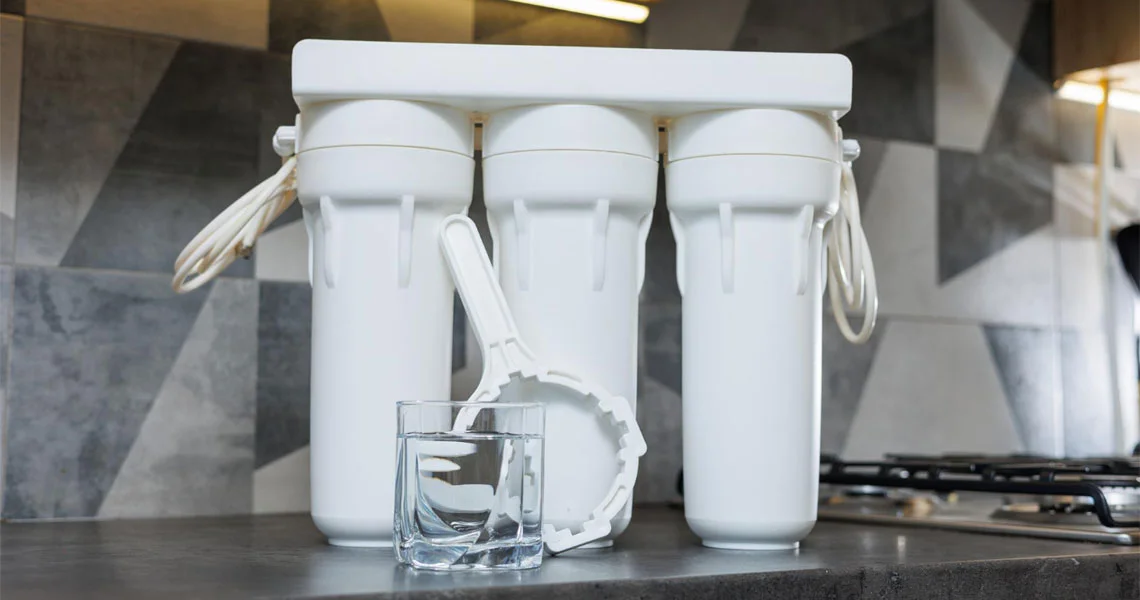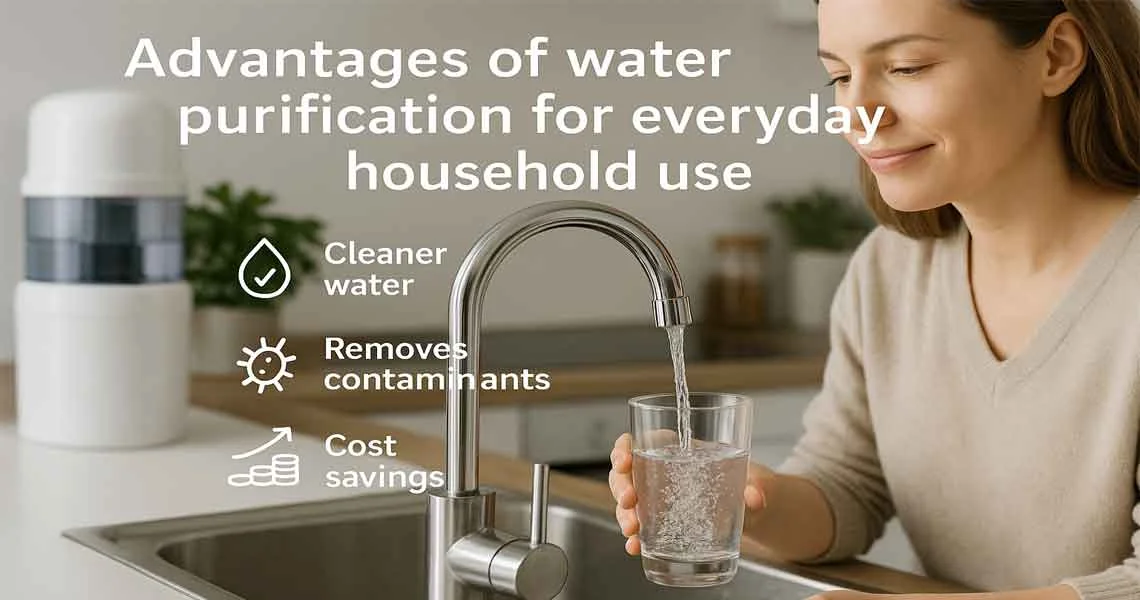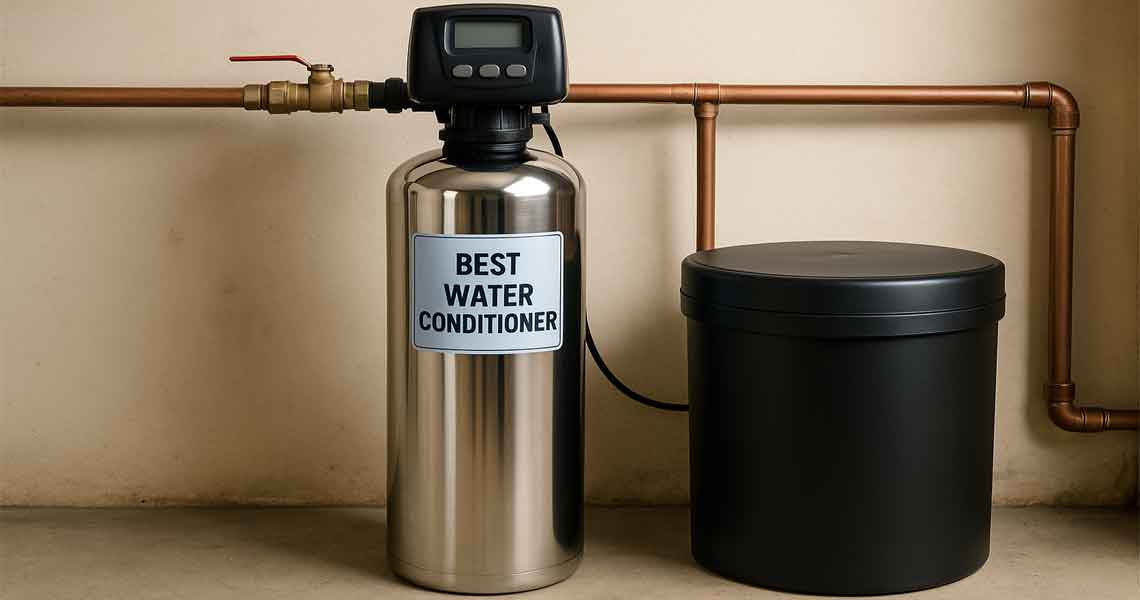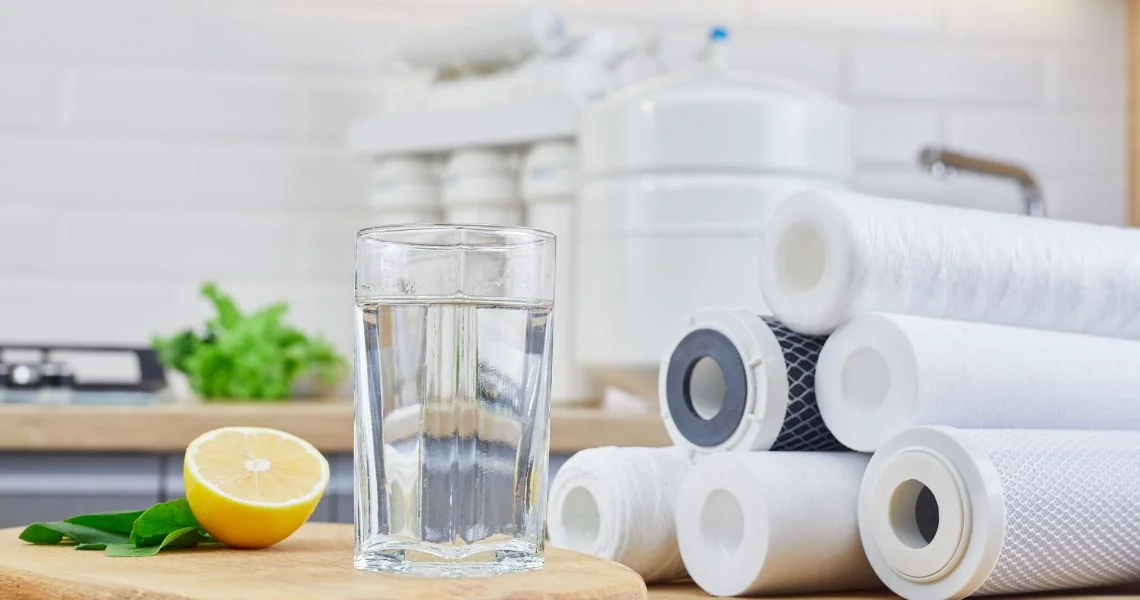Pure, clean water is the lifeline of any household. Aside from drinking, water is required for a variety of daily activities, including bathing, cooking, cleaning, and watering plants. You may be proactive about ensuring that your drinking water is pure and free of toxins by investing in a water purifier. Water used for other household duties may not receive as much attention, especially when dealing with hard water and water filtration problems.
The majority of Indian cities have access to just hard water from their taps. This causes unattractive white blotches on utensils, kitchen and bathroom tiles. This could manifest as skin irritation or hair loss. With so much language and processes going around in the water solutions sector, it’s understandable to be confused between a water softener vs water filter. In this essay, we will strive to answer all of the typical questions about the subject.
What is Hard Water?
What exactly does the term “hard water” mean? Hard water is defined as water with a high concentration of minerals such as calcium and magnesium. A water purifier alone will not solve your hard water problems. There are two primary methods of water provision: municipal water supply and borewell water. Municipal water supply is typically treated to make it safe for consumption. So, in most situations, municipally supplied water is soft, free of pollutants and dissolved minerals. The alternative option is a borewell supply, which draws water straight from the earth. This has not been treated and may contain pollutants and minerals, making it harder.
If you see a white patina-like residue on your dishes and scales on your tiles, your water source is most likely hard water. The detergent or washing powder you use to clean these interacts with the calcium and magnesium, leaving ugly and tenacious residues. While hard water is not necessarily harmful, it can cause skin irritations and hair loss, as well as unattractive stains that can be inconvenient to deal with on a regular basis. Hard water can also cause deposits inside appliances such as washing machines and water heaters, reducing their lifespan. A best water softener 2024 must be utilized to assist ease these issues because a water purifier does not soften water.
What is a water softener and how does it work?
A water softener, in its most basic form, dissolves calcium and magnesium deposits from water and’softens’ it. This will prevent scale buildup in your pipes and tiles. Skin irritation and hair loss may be significantly decreased. This can also help your appliances last much longer. One of the most tried and true methods of water softening is ion exchange.
In this process, hard water travels through resin beads containing negatively charged ions. These attract and bind the positively charged calcium and magnesium ions found in hard water. This renders the water mineral-free, softening it. Many households in water filtration Pensacola FL areas rely on such systems.
What is a water purifier and how does it work?
The water supplied from water sources may contain pollutants such as parasites and bacteria. These are toxic when taken and can cause fatal diseases. A water purifier eliminates these dangerous particles, leaving the water clean and suitable for human consumption. Unlike a water softener, a water purifier uses many stages of filtration to remove pollutants, heavy metals, and microorganisms.
Physical filtering removes dust and grime, whereas chemical filtration removes contaminants that are not visible, such as bacteria, viruses, dissolved solids, and pesticides. The most popular method of water filtration system is reverse osmosis. Water is pushed through a semipermeable membrane using pressure. The toxins are flushed away, leaving only safe, pure water. This makes choosing the best water softener for Florida or purifier essential depending on the water quality.
What is the difference between a water softener and a water purifier?
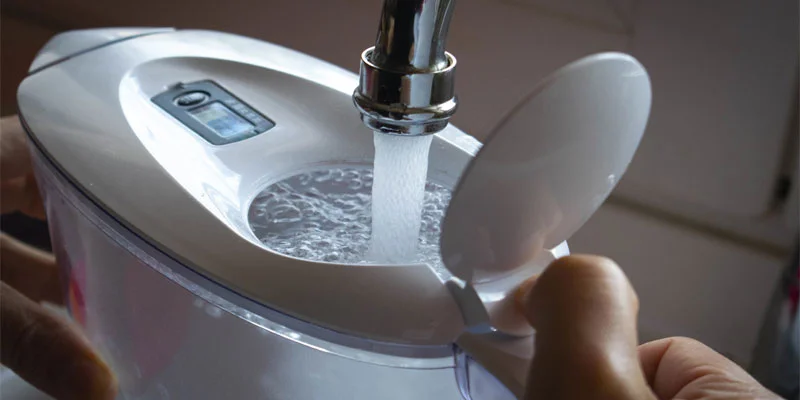
Water purifiers and softeners are two distinct concepts that cannot be used interchangeably. While a purifier removes pollutants and impurities, it does not soften water. It may employ carbon filtration, reverse osmosis, and UV filtering to eliminate dirt, pollutants, sediments, dissolved solids, and pathogens. It improves the odor and flavor of filtered water. However, using a water purifier to treat hard water is not recommended.
A water softener uses a separate treatment process to convert hard water to soft water, but it does not eliminate impurities. While hard water is not inherently dangerous, it can create scale buildup, as well as skin and hair problems. A water softener can help to address these difficulties. A water softener, on the other hand, does not remove pollutants from the water and hence cannot substitute a water purifier in this regard. This is why many opt for the best whole home water purification system alongside a softener.
Do I Need a Water Filter If I Have a Water Softener?
If the water in your location is extremely hard, a water softener will assist you in resolving scaling and residue issues, as well as skin and hair concerns, and may even increase the longevity and efficiency of your equipment. Unfortunately, that is the extent of a water softener’s capabilities.
A water softener cannot eliminate dangerous pollutants, dissolved compounds, and microorganisms that may cause harm if taken on a regular basis. Only a water purifier can help you do this. Investing in a water purifier is vital for the health of the entire family because it cleans and disinfects the water. An improved flavor and odor is an added benefit.
Why a Water Filter is Better than a Water Softener
As we’ve seen, a water filter and a water softener address two distinct issues and cannot be used simultaneously. It is best to use both if the water quality in your location is poor. If you have to choose between the two, a water purification systems will be the superior option. This is because, while it does not soften water, it does eliminate all pollutants and possibly harmful toxins, guaranteeing that you have access to safe, clean drinking water. A water softener, on the other hand, can only remove calcium and magnesium deposits while softening the water. It cannot remove any type of pollutant.
Although hard water has a number of difficulties, including scaling and skin and hair problems, it is not as deadly as polluted water. So, the first thing you must do is ensure that the water you and your family drink is safe and pollution-free. A water filter is the greatest option for this.
Contact us now.


